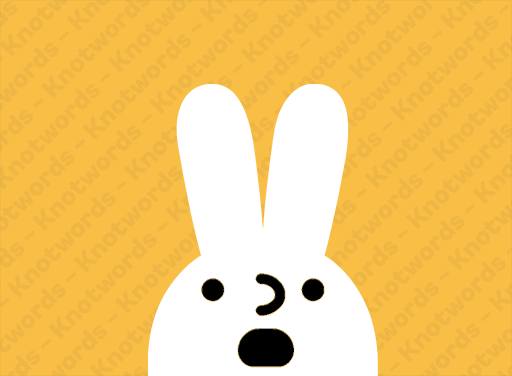You know how when an author writes a new book, they typically get to stand at a podium and give some sort of talk in front of a crowd of people discussing their new work and fielding questions from the audience? Developers Zach Gage and Jack Schlesinger wondered why can’t people in other fields do that when they make something? So today, over on Zach’s Twitch channel, the duo gave the official “book talk" for their new game called Knotwords. It was a little over an hour long and was actually a much more interesting way to learn about a new game than some dry press release. Mostly because it gave them the opportunity to discuss how the concept for the game came about, which I will try to briefly summarize.

In 2019 they had been prototyping a new word game and even had a build all ready to go to show off during GDC in 2020. Except, well, we all remember how 2020 went, right? So without being able to announce or show off this game, they started to reevaluate it and decided the concept had some issues that they weren’t fans of. They continued to iterate and try out new ideas in search of this “dream" word game that Zach had envisioned. Inspired by a kind of obscure and somewhat janky online word game they had come across, they wondered how they could implement some of that game’s mechanics that they liked into their own. Jack wanted to suggest a feature from Nonogram puzzles, but when telling Zach about it he misspoke and accidentally referenced KenKen instead of Nonograms. This was a happy accident, however, because it suddenly gave them the idea of “What IF we blended our idea with the concept of KenKen?" Lo and behold, that was the ticket to the dream word game finally working, and Knotwords was born.
In case you aren’t familiar with KenKen, it’s a variation on Sudoku but rather than filling out a 9×9 board filled with 3×3 subgrids, the 9×9 board is broken up into a variety of different sized cells. The overall goal of placing numbers 1-9 in every square so that they don’t appear twice in the same row or column is the same as Sudoku, but each cell also has its own math rules it must abide by and which also offer clues as to which numbers should go into each space. Knotwords doesn’t feature a full grid like Sudoku, but more of a Crossword-style layout that is broken up into cells like KenKen. Rather than math rules however, each cell has its own set of letters that must be used, and the result of every cell being filled out correctly should equate to proper words across and down the entire board.
Like so much of Gage’s previous work, it’s a really simple idea on the surface and a really subtle change to some established word and logic game mechanics, but that change has a tremendous effect on the resulting game and basically creates something entirely new. And of course with all the polish and shine you would expect from a Gage/Schlesinger joint. In an amusing twist, the feature Jack originally wanted to pitch from Nonograms, the numbers on the top and side of a puzzle that indicate what sets of colored squares will be in each row or column, did eventually find its way into Knotwords in the form of an alternate mode that lists the number of vowels that should be in each word along the top and lefthand side of the puzzle.
If you’re a fan of this duo’s previous work like Spelltower, Good Sudoku, or Card of Darkness, look for Knotwords to launch this Thursday across iOS, Android, and Steam. The game will be free with ZERO ads, and free players will get a limited selection of daily puzzles. You can pay to upgrade the game and get access to more daily puzzles as well as a full back library of prevous puzzles, and more, for a $5 per year subscription. But! Since everyone, including these guys, kind of hate subscriptions, iOS and Android players can instead go for a one-time IAP of $12 to just unlock the full premium game forever, which is the same price the PC version will be selling for on Steam. Pretty cool deal. I simply can’t wait to get my hands on Knotwords later this week.